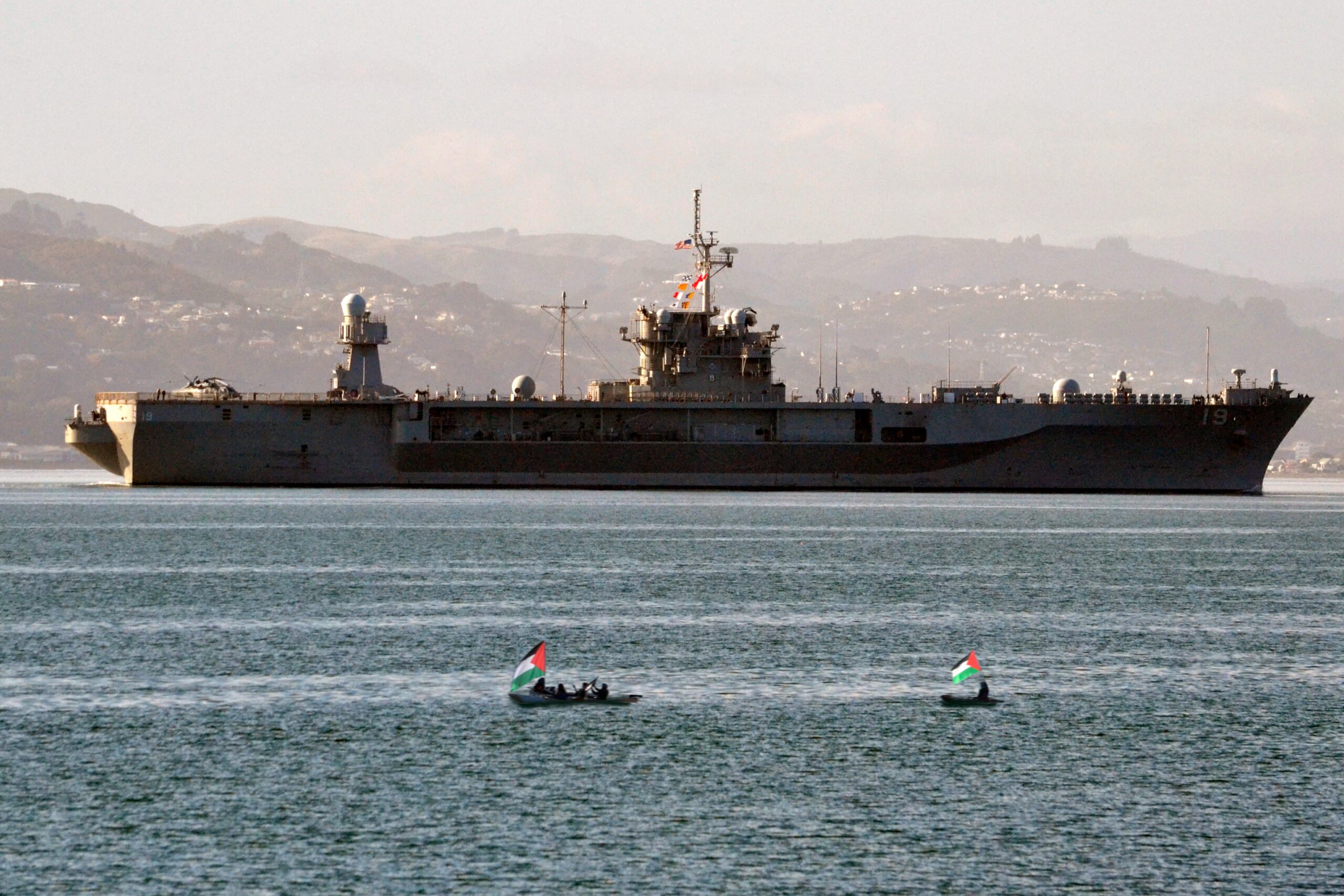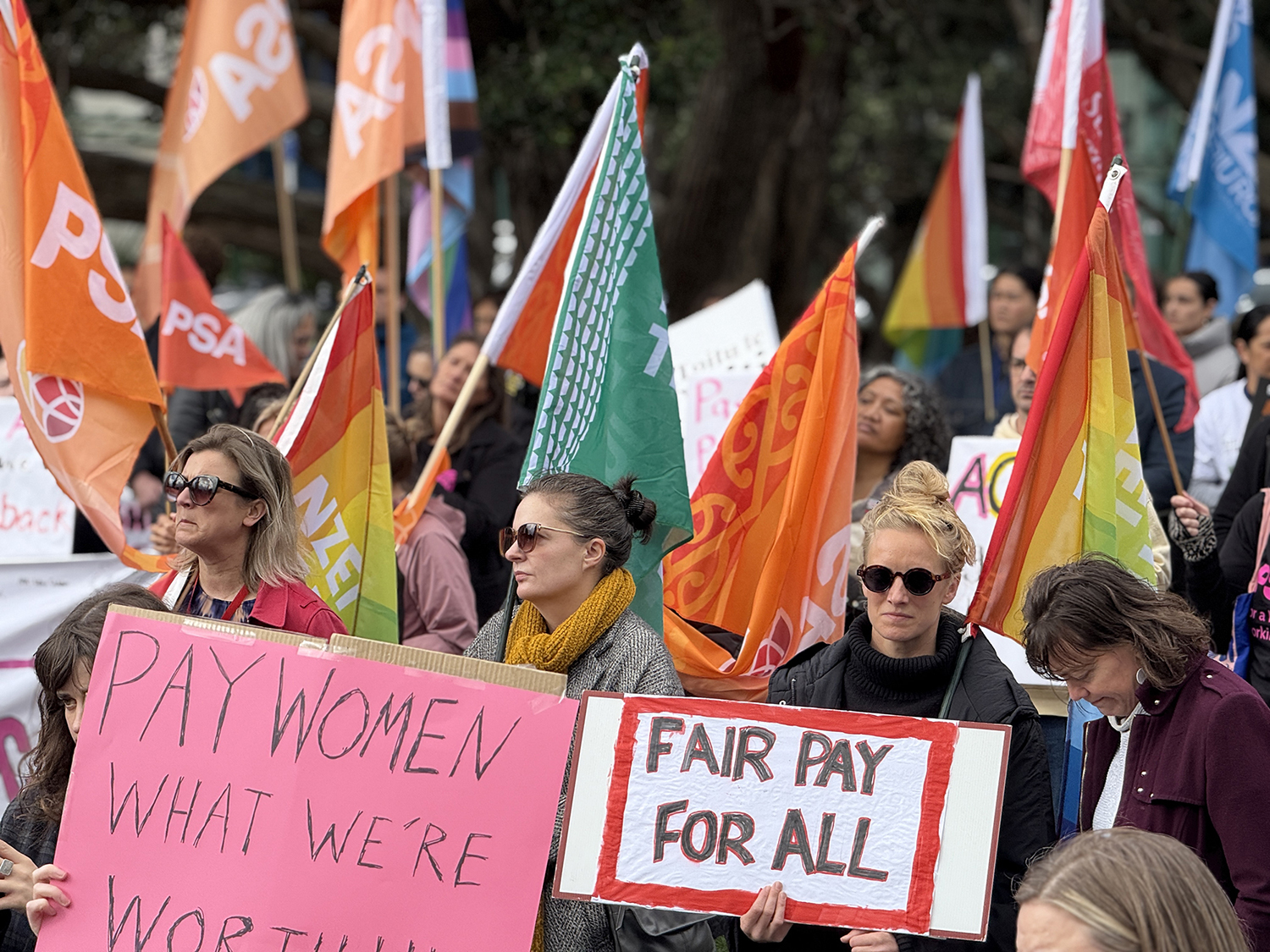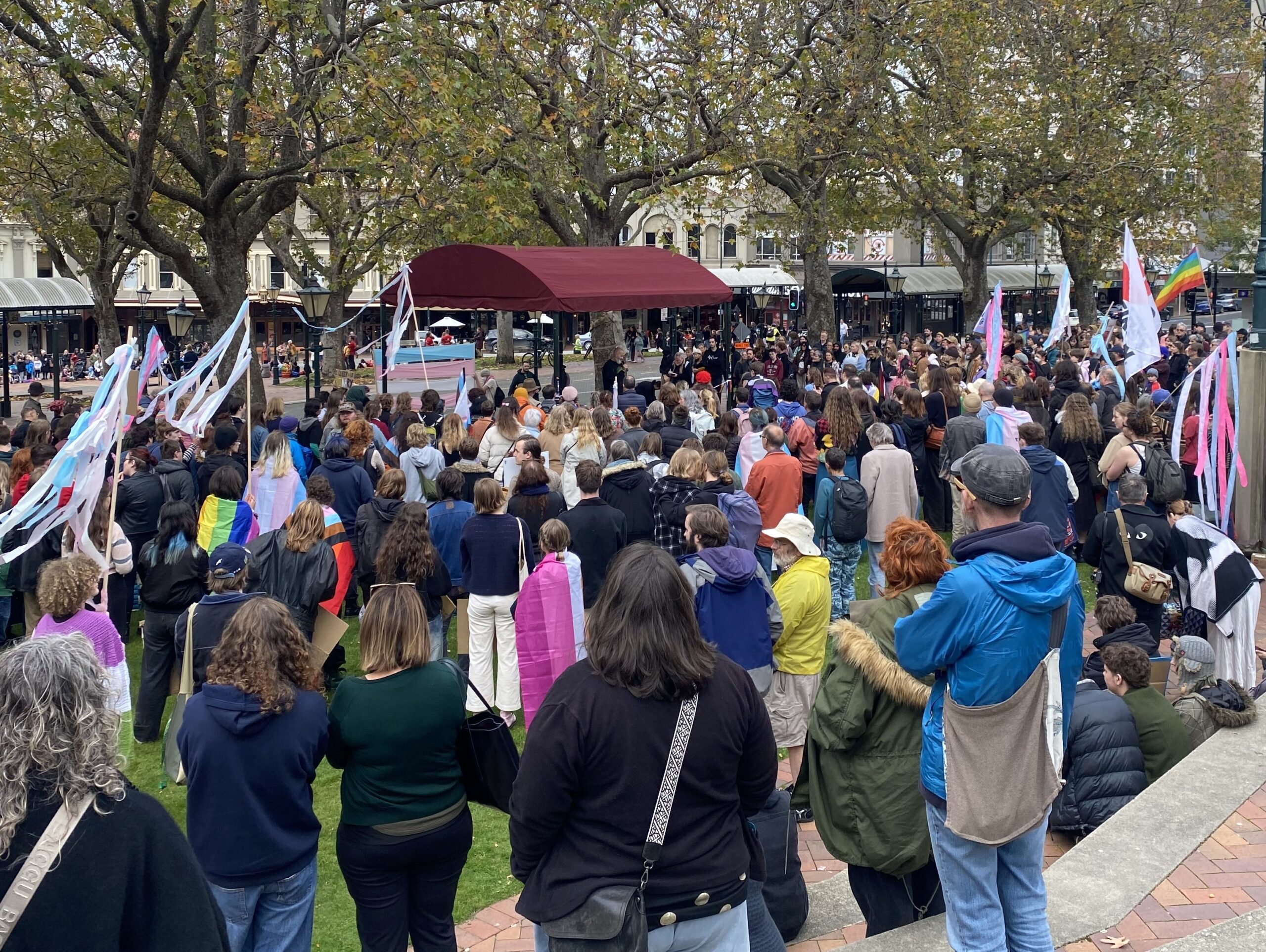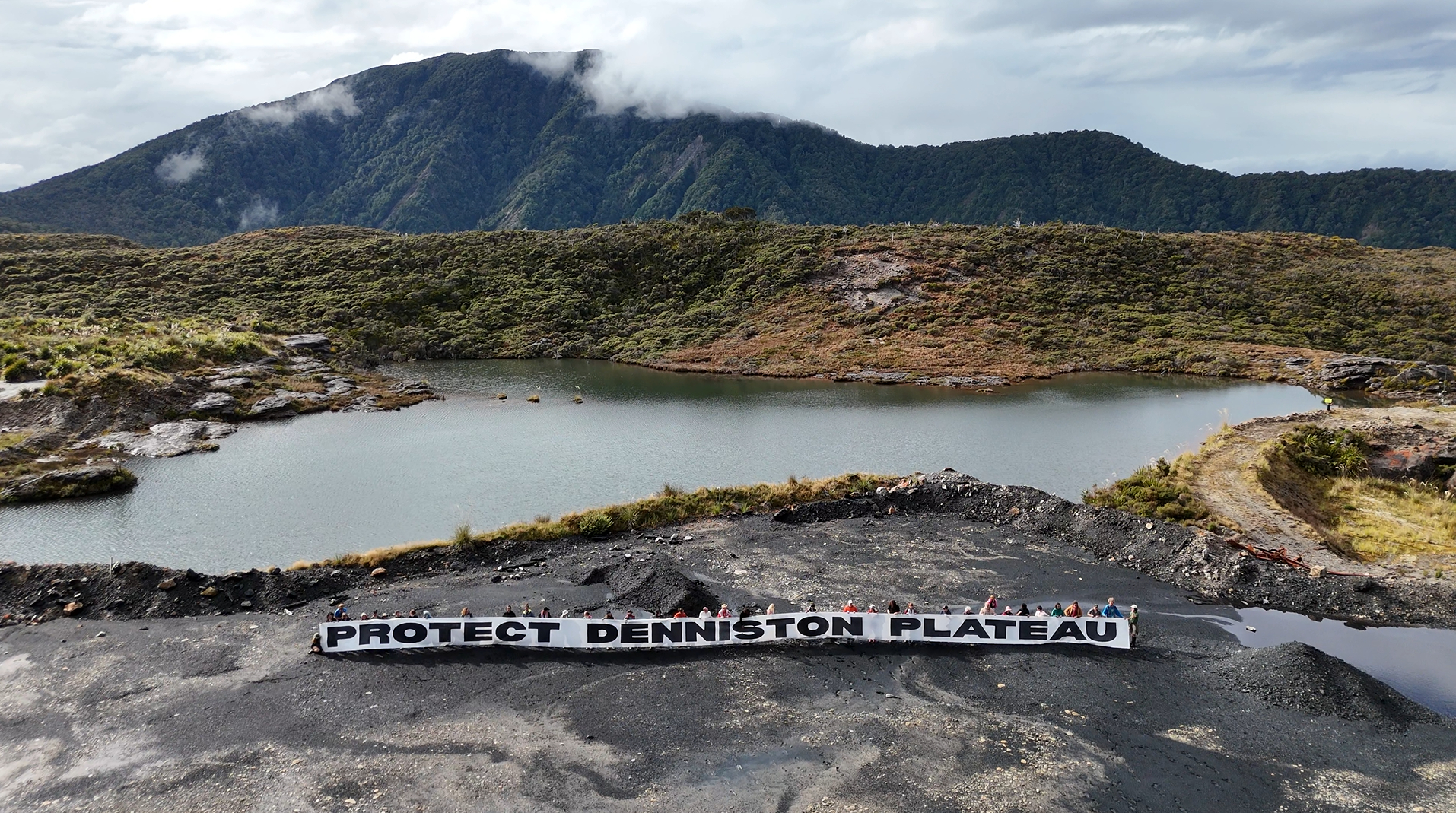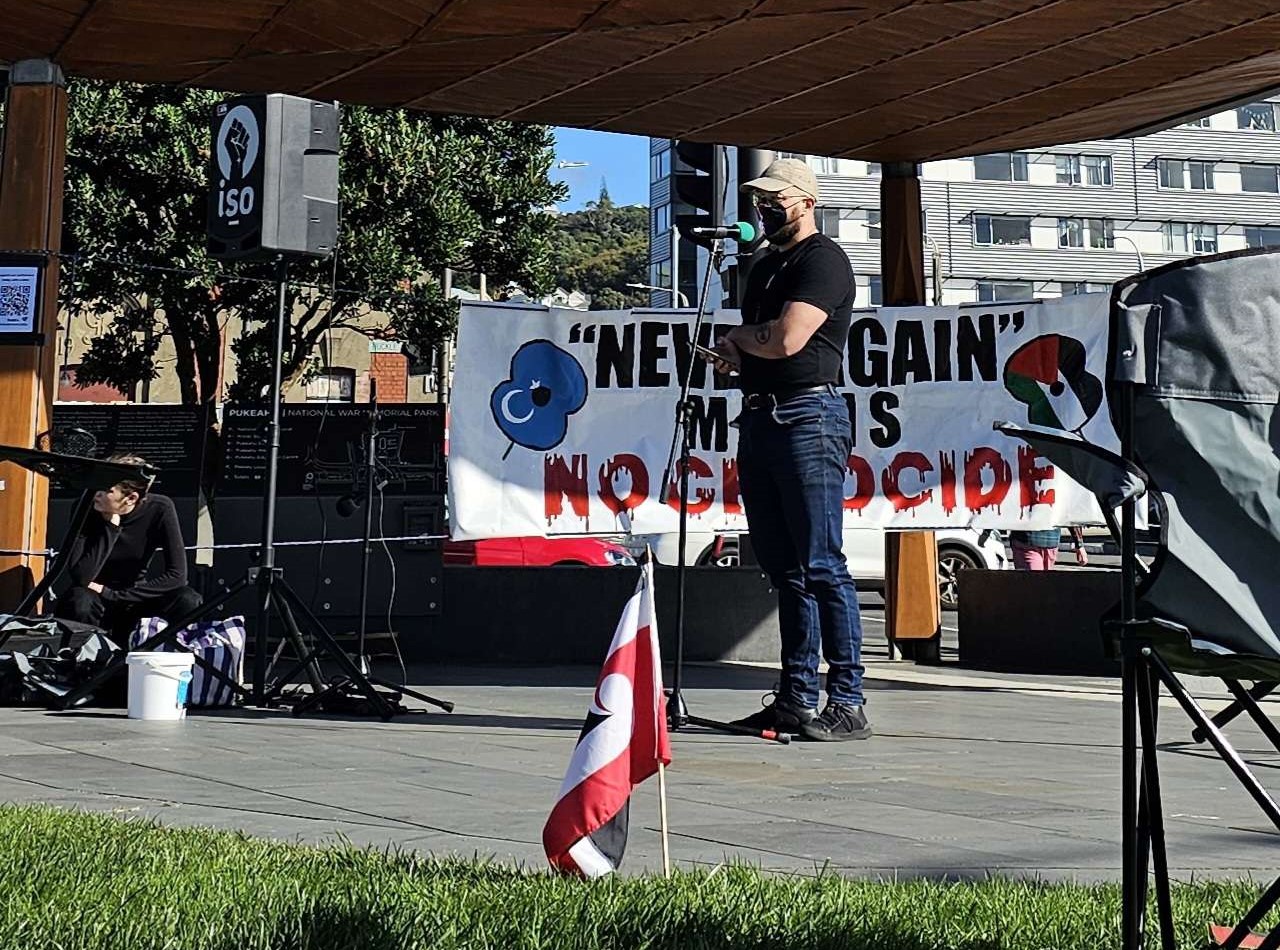More than 40 members and supporters of the International Socialist Organisation met at Waipapa Marae, in the heart of Tamaki Makaurau/Auckland, last weekend for the revolutionary socialist organisation’s third national conference, and first-ever Auckland conference.
A quarter of all children in New Zealand grow up in poverty. Austerity, cutbacks and exploitation remain the ruling-class agenda in Aotearoa and internationally. A sharp sense of the need for a socialist alternative united members and supporters from as far afield as Otepoti/Dunedin for two days of intense discussion and debate.
The whare Tane-nui-a-rangi, carved by Pakariki Harrison, combines in one house the tupuna and whakapapa of many iwi. We are grateful to the iwi kainga of Waipapa Marae for welcoming our people, who descend from Nga Puhi, Ngai Tahu, and Te Arawa, as well as from Haiti, Ireland, Scotland, England, China, Korea, Sri Lanka, Iran, Japan and South Africa together under the one roof of Tane-nui-a-rangi. During the powhiri, our kaumatua Paul De Rungs paid respect to Nelson Mandela and all the other freedom fighters of South Africa. Moe mai ra e te rangatira.
Thirty to forty people slept together in the wharenui, ate together and talked together, and though speech may be the food of chiefs, food was not neglected. A hakari on Saturday night was the highlight of the conference – complete with roast pork, tofu steak and aubergine (for vegetarians), and pavlova. We had tamariki as young as 3 all the way up to kaumatua as old as 78 participate in the hui-a-tau.
A high level of engagement and lively discussion marked the conference. Participants debated in sessions on national politics; the Arab revolutions; and Queer struggles after marriage equality. Educational sessions considered recent debates on socialism and feminism and the relevance of Trotsky in the 21st century.
A number of sessions assessed the organisation’s work. Conference commited to producing better and more frequent issues of our magazine Socialist Review. While our website has gone from strength to strength, conference was convinced a printed magazine was essential to build a network of resistance and share struggles from throughout New Zealand. The organisation voted to commit serious resources to make this happen. We will detail more in coming articles online.
Conference also recognised weaknesses in our organisation. Just two years ago, the centre of gravity of the ISO was heavily slanted towards one small city – Dunedin. The establishment of branches in Tamaki and Poneke/Wellington has meant education and communication has been uneven. Conference voted for a co-ordinated national education programme and better communication between branches.
Our commitment to trade union struggle was reaffirmed and our understanding of the challenges for militants and socialists in this period will be printed online shortly. The ISO has more members active in the unions than ever before – unionists from the EPMU, NZEI, PSA, TEU and Unite all shared experiences of organizing on the job through 2013, and developed networks to share information and skills better in the future.
The ISO has grown over the last year; reflecting this growth, and as a result of political debates through the weekend, conference elected an expanded National Committee. In a contest between three proposed teams, one which represented the widest range of activists from across all three branches was elected. The NC comprises Aucklanders Rowan McArthur, childcare worker, and Derwin Smith, student, Wellington-based Shomi Yoon, translator and Dougal McNeill, lecturer (TEU), and Dunedin-based journalist Andrew Tait (EPMU) and lawyer Jen Wilson.
Has the tide turned?
National has, for too long, seemed unbeatable. Through 2013, cracks have started to show, from scandals at the top, like Dunne or Banks, to discontent from below, which pushed Cunliffe into the Labour leadership. 2014, an election year, will offer opportunities to build on anti-National sentiment, and relate to those fighting cuts and attacks.
This year, the ISO will focus on the possibility of the defeat of National and the Right and the election of a Labour and Greens-led government. We are 100% against National, but hold out no false hopes in a Labour-led coalition. A Labour-led government will still be a capitalist government; but Labour and the Greens are not irrelevant because pressure from below can result in reforms. We want to expose the limits of Labour and the Greens’ bourgeois politics and to win their supporters who want real change to a revolutionary perspective.
Standing with Mana
Ahakoa he uaua, kia kaha, kia toa, kia manawanui: the spirit of this whakatauki; “be strong, be brave, be patient, whatever the difficulties”, ran through our discussion of our relationship with the Mana movement.
Conference resolved, by a large majority, to reaffirm the ISO’s electoral support for Mana. Over two sessions the conference debated the relationship between socialism and tino rangatiratanga as an idea and movement, and between the tasks of building the ISO and supporting the Mana movement. The sessions were marked by robust debate, and a clear majority view emerged in favour of strengthening our existing ties with the Mana movement and supporting Mana in the 2014 election.
Hone Harawira, one participant remarked, was the first leader of a political party she felt she could vote for with real feeling; he has stood by his principles and is a fighter for the poor, the dispossessed, and Maori.
Fighting for Socialism
We put our revolutionary socialist politics front and centre of our work: the ‘Where We Stand’ column in each issue of our magazine makes the case for the need for revolution, for clear anti-capitalist politics, for tino rangatiratanga and for a Marxist party drawing on the lessons for the past for the fights of the future.
Conference reaffirmed that the central task of branches of the ISO is building a revolutionary socialist organization. This task is not supplementary or subordinate to our involvement in other campaigns, coalitions, parties and events.
We want to build this organization to make the ideas of socialism a practical reality. It was appropriate, then, that our conference should end with a delegation to Auckland Action Against Poverty’s picket of the National Party’s Christmas function, held at one of Auckland’s richest schools. Ka whawhai tonu matou! The struggle continues!


